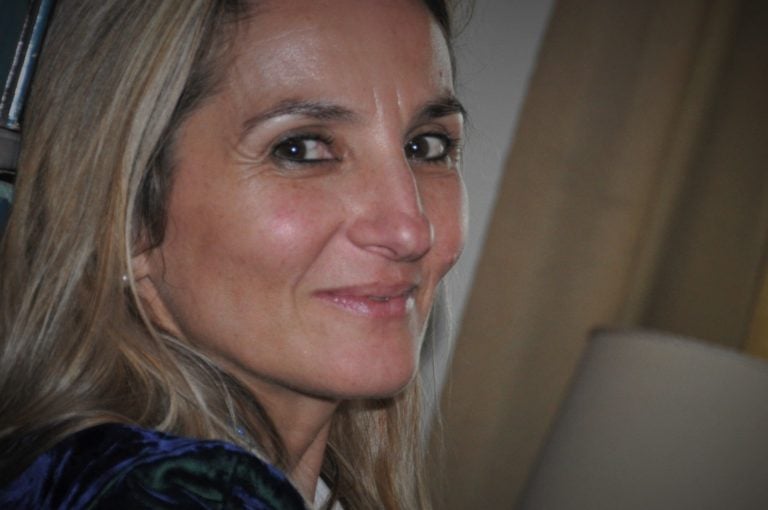The Greek documentary, ‘When Tomatoes met Wagner’, comes to Australia after having its world-premiere at the Berlin International Film Festival and winning the FIPRESCI Award for Best Greek Film at the recent Thessaloniki Documentary Festival.
At first sight the documentary is about two Greek cousins who use classical music and ancient tomato seeds to create specialised products that are sold across the globe in upmarket shops such as Harrods and Harvey Nichols. But take a deeper look and the story of a tiny rural community located in the village of Elias central Greece, is a transcendent tale that provides an insight into Greece’s agricultural crisis.
Award-winning documentary filmmaker Marianna Economou told Neos Kosmos her film highlights how this farm still manages to exists despite the outside forces that have ravaged the surrounding areas.
“What inspired me and challenged me about this particular story was the fact that in an area that has basically nothing to offer I found a special dynamism of the 33 inhabitants that live there,” she said, ahead of her visit to the Sydney Film Festival.
“The protagonist, Alexander, is a very charismatic personality; he inspires people to dare to do things that they otherwise wouldn’t. They absolutely love what they are doing and they believe in what they are doing. It’s a struggle for survival. The area is dying out, no young people would live there. But the people have managed to transcend all that. It’s a huge lesson for all of us.”
Alexandros and Christos Gousiaris’ farm in Elias is located on the western border of the Province, between Karditsa and Larisa (approximately 25 km) situated in the Thessaly Plain, in the centre of Greece. They have created a product of high quality using ancient farming techniques that go against the grain of modern industrialised methods. It has led to their gourmet jars of tomatoes and honey being exported all over the world including America, Japan and all over Europe. Ironically their products are not bought in Greece as it’s too expensive for the locals.
This geographic region is notable for at one point being the centre of Greek agriculture but Economou revealed the surrounding farming areas are in an economic crisis.
“Thessaly Plain is known as the largest and most important agricultural farming plain in Greece since ancient times,” she said.
“The EU policy destroyed completely the structure and the way agriculture operated in Greece. There is no incentive for the farmers anymore. Now the big problem is there is not really an agricultural policy, nobody tells the farmers what they should be growing. There is no information and the farmers feel completely left on their own to survive and prices are going down. It’s incredibly sad what’s been happening.”
On and off Economou spent five years in Elias and decided to make a documentary on this tiny village to shine a spotlight on how multinational companies are destroying local varieties at the cost to local farmers.
READ MORE: Tomatoes in the Greek kitchen

“The fact is that we don’t know what’s in our food that we are eating,” she said.
“This is a human rights issue. We have to know what we are eating and be able to consume food that doesn’t make us ill. So this film addresses this issue but the way that I approach it is through this small local story with these people who show us that there are ways. That no matter how difficult things appear if you have the right approach and passion and love for what you are doing you will find a solution.”
In one of many memorable scenes of ‘When Tomatoes met Wagner’ Alexandros drags through the tomato fields large speakers leading to the two cousins arguing, over whether traditional Greek music and not classical creates better produce.
“The whole thing about the music is it’s a way to see life in a different way,” Economou revealed. “That different way gives them the courage to try things. Don’t forget that this is an incredible conservative, introverted small village. All they see is the plain and nothing else and suddenly they are exporting their jars all over the world.”
Whether music makes the tomatoes tastier is debatable and so is the origin of the tomato seeds which Alexandros believes date back to when Christopher Columbus first brought them to Europe.
“But Alexandros really believes in it,” Economou said. “This makes the product more valuable. It really doesn’t matter if it is true or not. It’s not totally untrue because they can trace those seeds back to the early 1900’s. Alexandros knows that there is no way that they cannot compete with Chinese tomatoes. They have to bring to the market something unique which is in their product and the fact they are using a very ancient seed which they believe is the same seed that Christopher Columbus brought from America and that they are probably the only people on earth that cultivate it.”
“When Tomatoes Met Wagner’ will be screened at the Sydney Film festival from Friday through to Sunday and will have a wider release later in the year.









